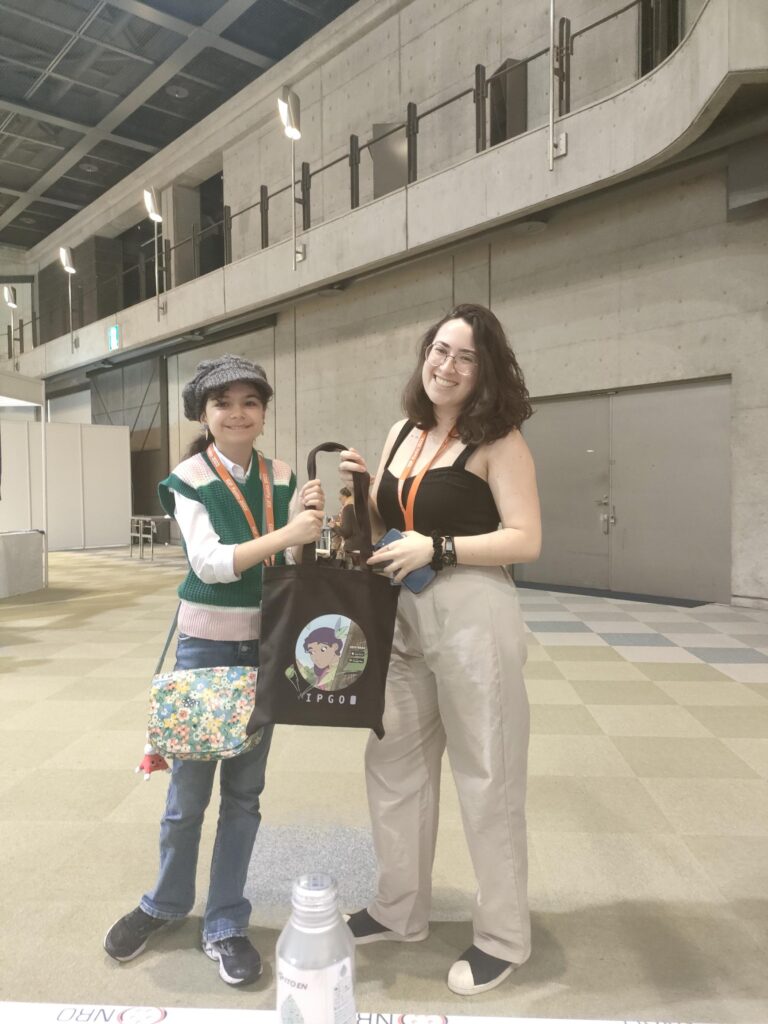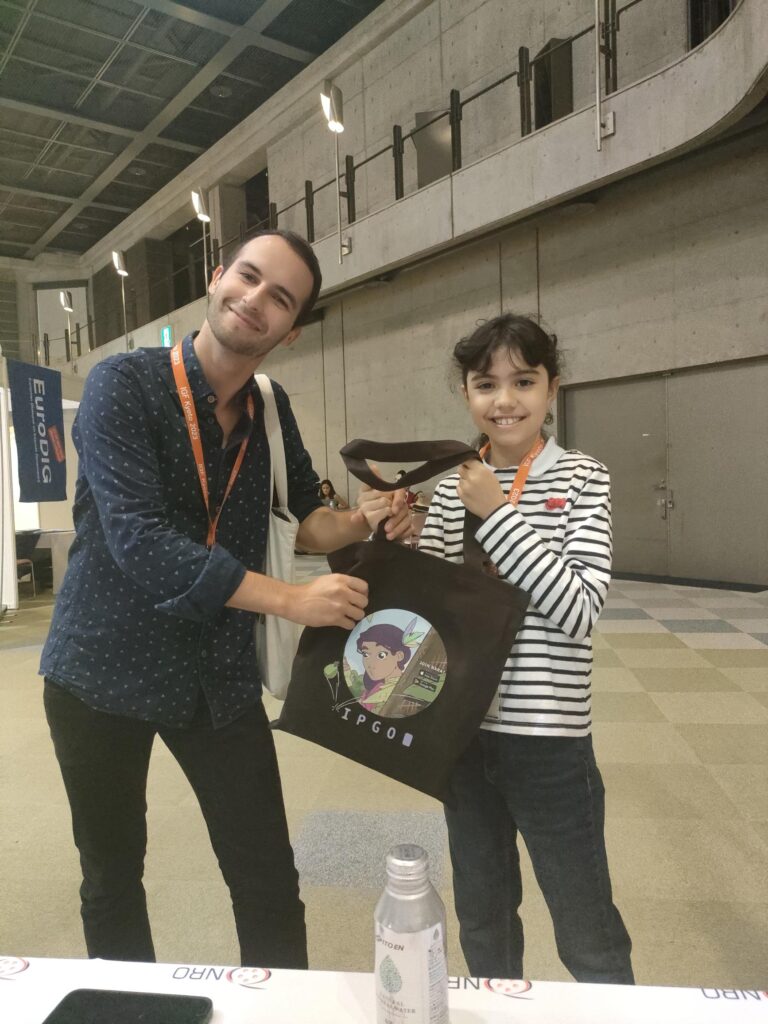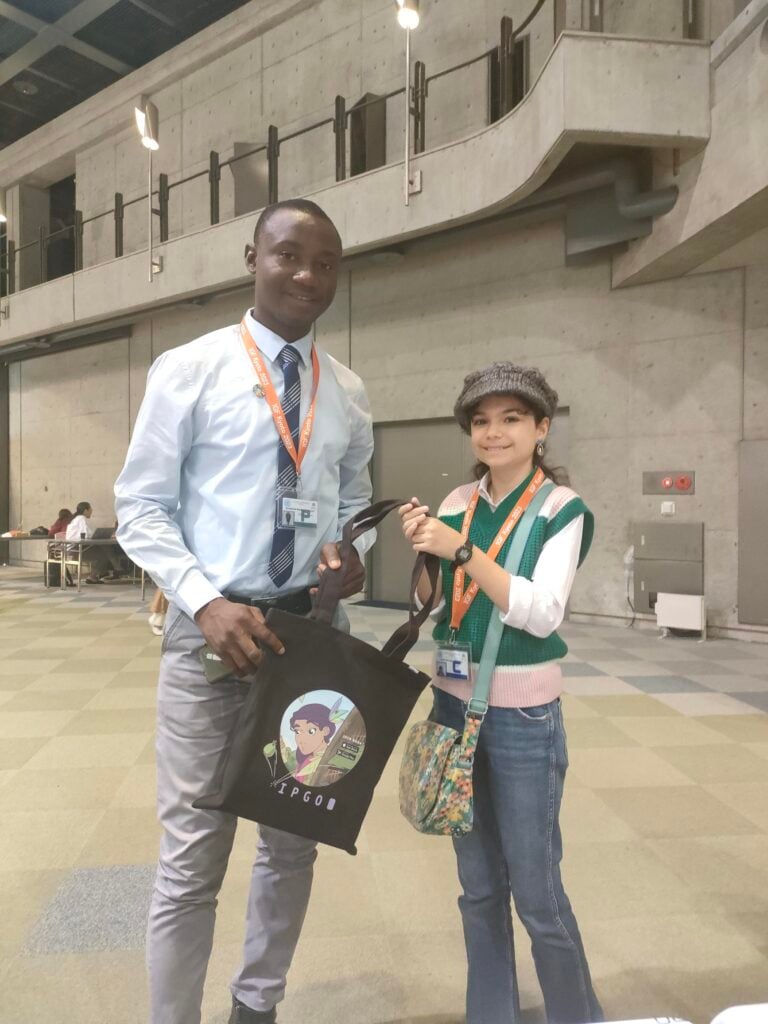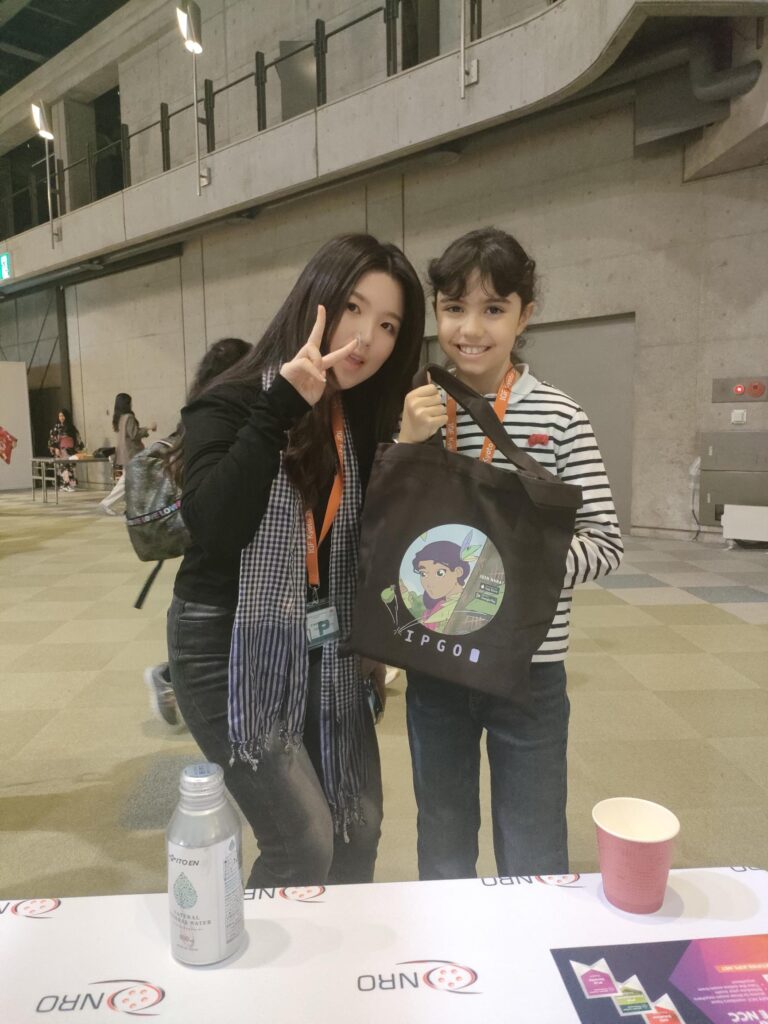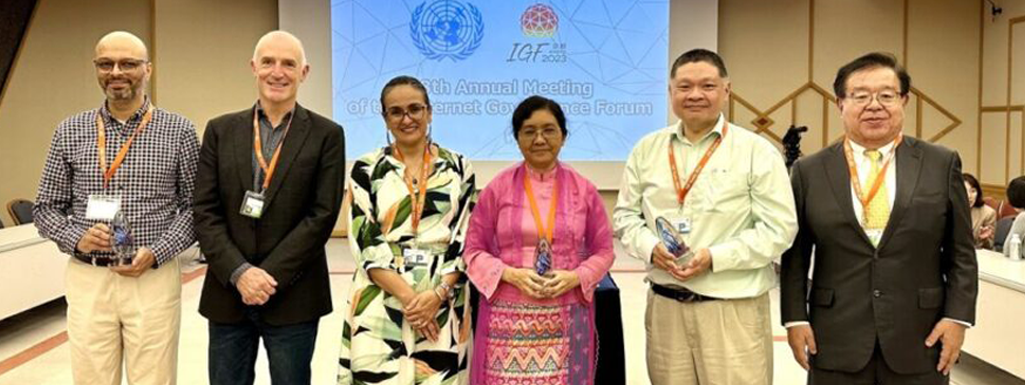The APNIC Foundation participated in a variety of events at the Internet Governance Forum in Kyoto, Japan, from 8 – 12 October 2023. There were also presentations and events held by grantees and partners of the Foundation. See the Foundation Flickr album for more pictures.
Day 0: 8 October
Event #84 Agents of inclusion: Community networks & media meet-up
This session was run by the Association for Progressive Communications (APC) and brought together a variety of speakers who have worked on community networks and civil society initiatives, particularly those focused around media.
Foundation Grants Management Lead Ellisha Heppner spoke at the session, highlighting Foundation activities in supporting community networks.
EcoInternet Index Launch
This event was organized by DotAsia, to launch the 2023 EcoInternet Index (EII) report. The EII is an ISIF Asia grantee project.
The EII examines factors such as routing efficiency and carbon emissions from energy to look at the environmental friendliness of Internet operations across different economies. It is intended to be a starting point for conversations about how to make Internet operations more environmentally friendly. in 2023, New Zealand and Japan ranked the highest overall for the environmental sustainability of their Internet operations.
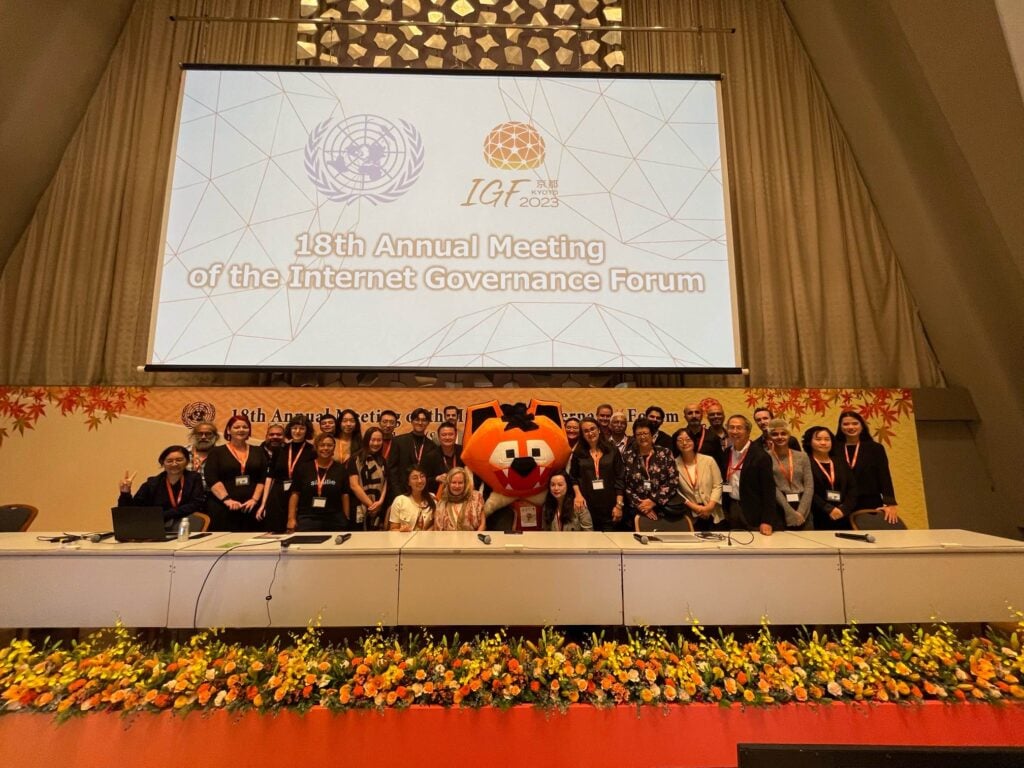
Day 1: 9 October
Networking Session #104 Bridging Connectivity Gaps and Harnessing e-Resilience
This session involved a presentation from several organizations working together on a piece of technology the provides local Internet services. The Locally Accessible Cloud System (LACS) can be used in disaster scenarios to provide a local Internet service for first responders and people affected by the disaster. There are also other use cases that were discussed in the session.
The CVISNET Foundation, based in the Philippines, has received Foundation funding to test the LACS (previously known as the Movable and Deployable Resource Unit (MDRU)), and work with the Advanced Telecommunications Research Institute International (ATR) who designed it.
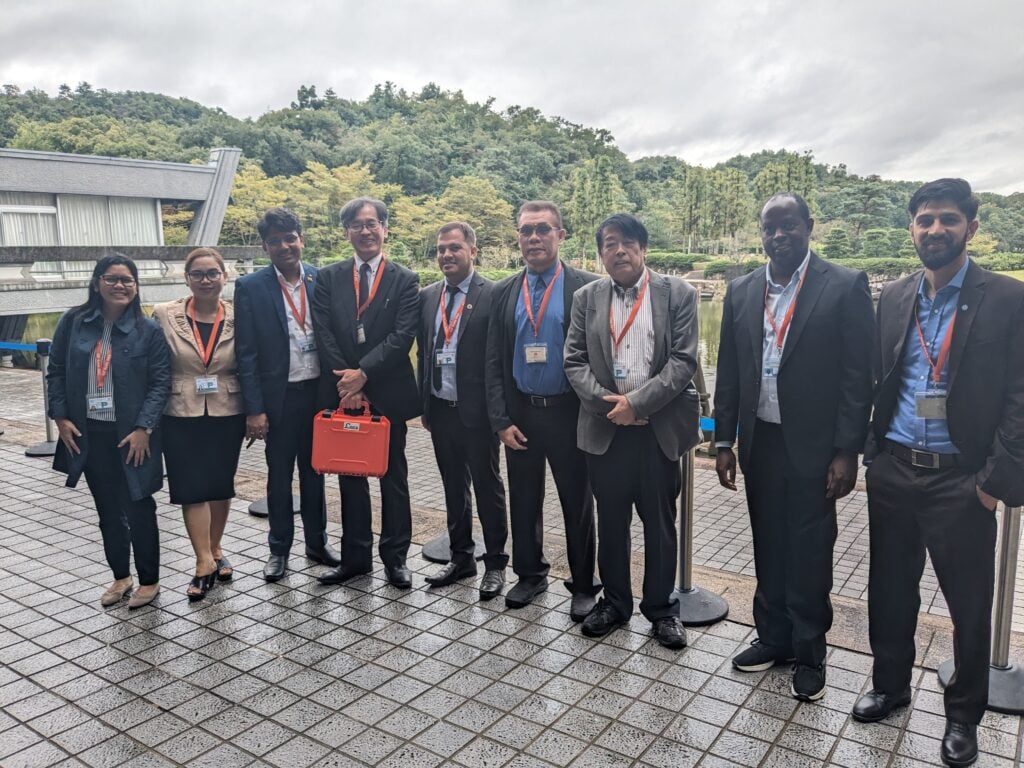
2023 ISIF Asia Awards
The 2023 ISIF Asia Awards recognized three projects working to support Internet Exchange Points (IXPs) in the Asia Pacific.
The three awards were:
- The Lahore University of Management Sciences (LUMS) for their work on software-defined IXPs – the award was accepted by project lead Zartash Afzal Uzmi.
- The Myanmar Internet Exchange (MMIX) for their work on supporting networks in Myanmar – the award was accepted by project lead Thein Myint Khine.
- The University of Malaya, for the design, development and operation of an SDN-based Internet eXchange playground for Networkers – the award was accepted by project lead Dr Ling Teck Chaw.
See also the awards blog post announcement for videos on each project.
The awards were presented by APNIC Director General Paul Wilson, Foundation board member and Japanese Internet luminary Jun Murai, and Foundation CEO Sylvia Cadena. Foundation grants management lead Ellisha Heppner moderated the session.
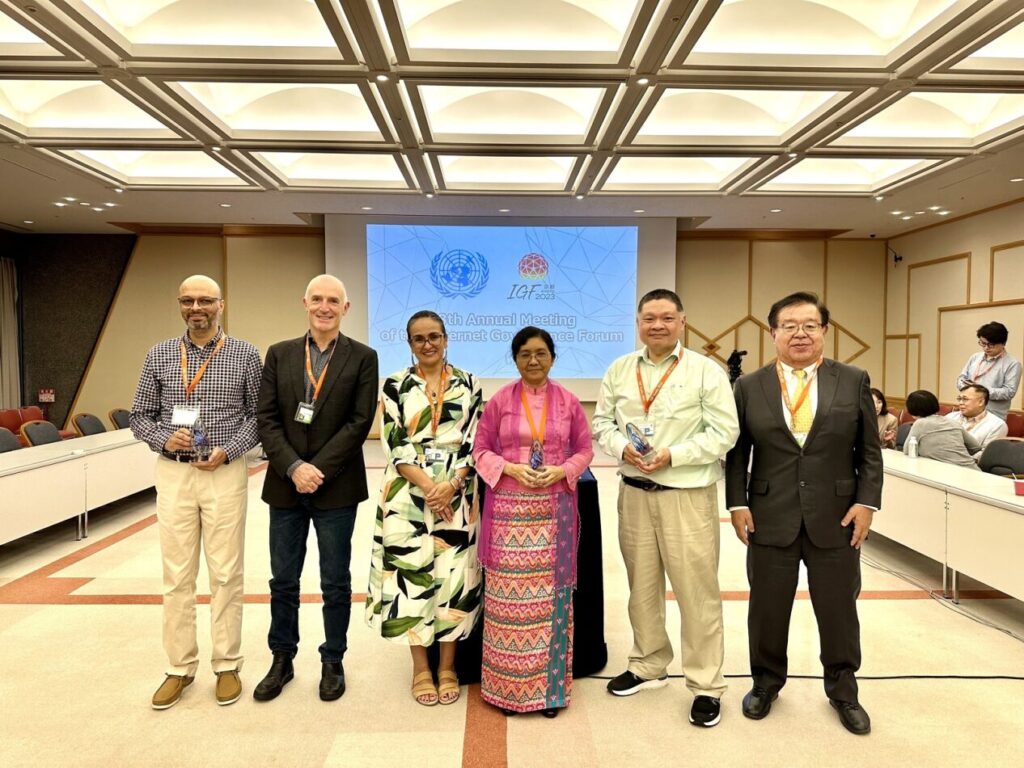
Day 2: 10 October
Networking Session #111: Meet & Greet for those funding Internet development
The Foundation organized this session to bring together organizations that are funding Internet development initiatives and discuss the challenges they face. This meeting was an effort to explore how these organizations can better work together. Participants broke into groups to share their experiences.
Common themes to emerge were around funding for measurable impact in the short term, versus funding to ensure sustainability in recipient organizations, as well as the challenges of communicating impact and selecting suitable projects for support.
Day 3: 11 October
Main Session: An untapped resource: How can digital cooperation contribute to the battle for our environment?
This session discussed the sustainability of the Internet and initiatives to tackle climate change in the context of Internet operations.
Dulce Soares, a water engineer with Timor Leste technology company Similie, spoke at the session. Similie is the recipient of an ISIF Asia grant for their work on IoT in water management. Dulce discussed the intersection between water management, climate change and technology interventions.
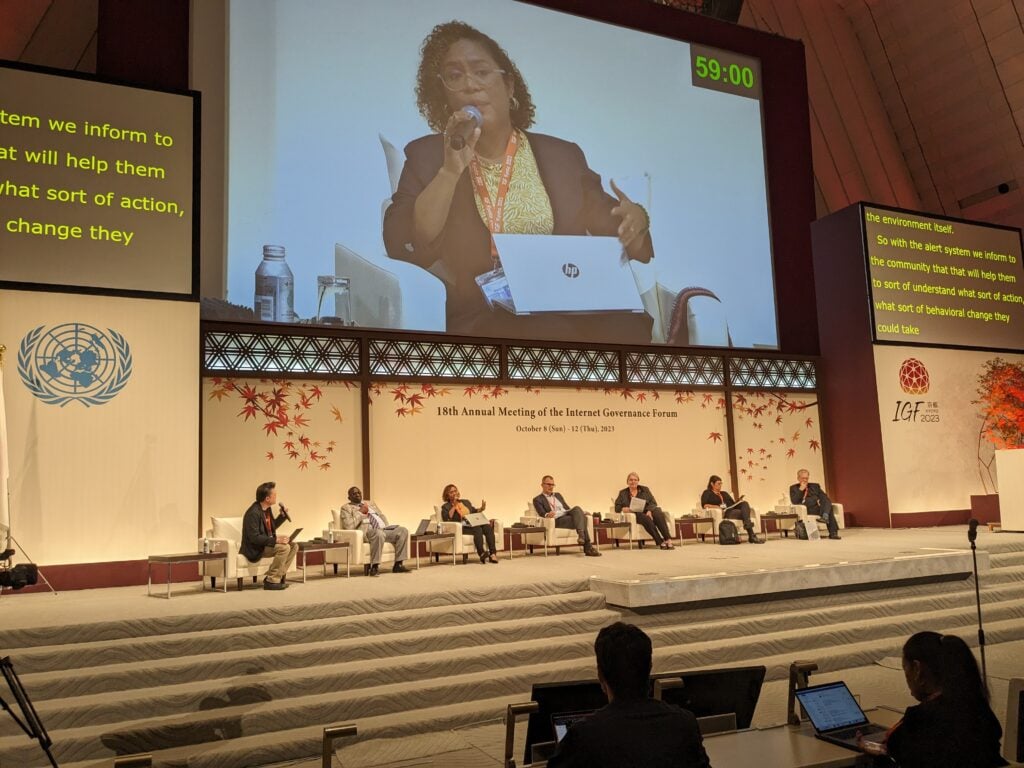
Lightning Talk #174 Switch! – an inclusive approach to capacity building
This lightning talk session discussed the Foundation’s Switch! project and its approach to inclusion and capacity building. The session was moderated by Foundation Senior Project and Business Coordinator Cathlene Corcoran, and had participation from Maristela Miranda, a Data Protection Consultant and Switch! Philippines participant. Maristela shared her experiences participating in the project.
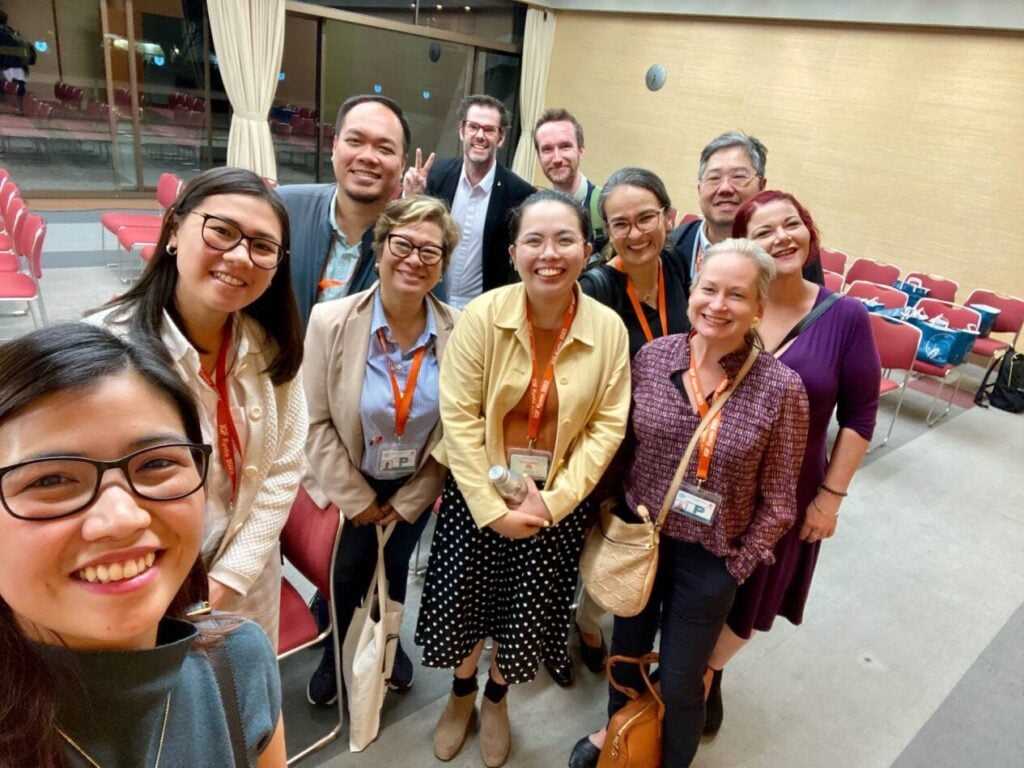
Day 4: 12 October
Lightning Talk #15 DIY mesh network kit
This lightning talk was held by T.B. Dinesh, of Janastu Servelots. Janastu Servelots received an ISIF Asia grant for their Do It Yourself (DIY) mesh network kit which is designed to help connectivity to remote communities. The presentation discussed how the kit has been designed as an out-of-the-box kit with instructions to be used by people who may have limited literacy.
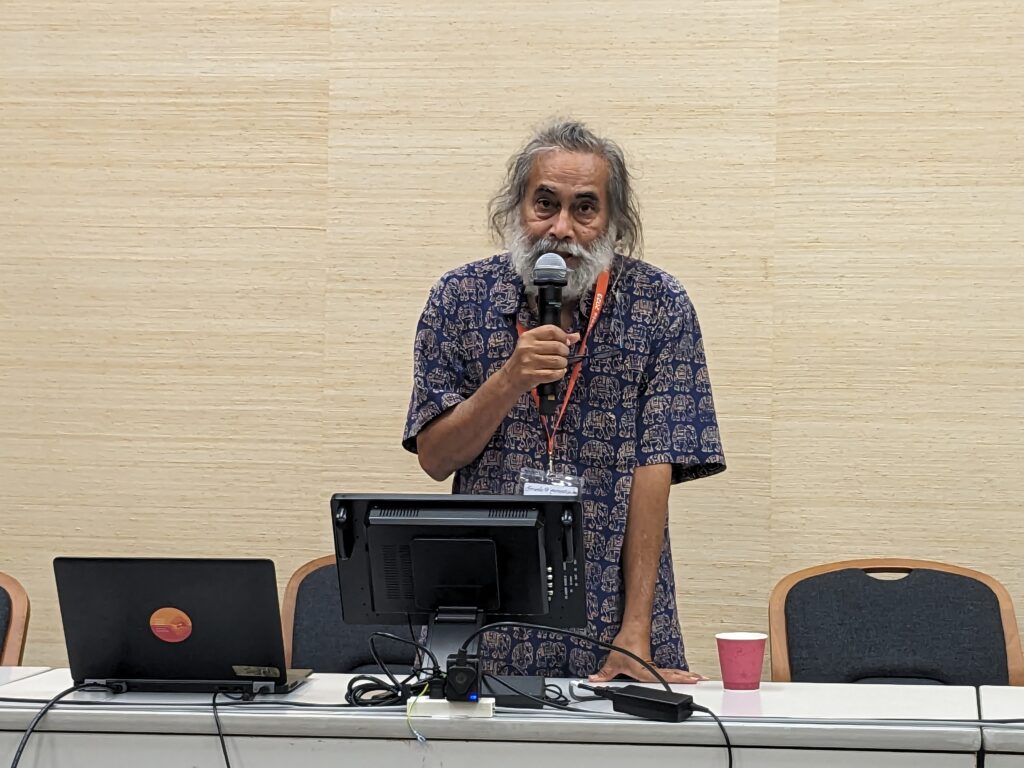
IGF Closing remarks
Foundation Acting CEO Sylvia Cadena delivered remarks at the closing session of the IGF, which highlighted the crucial role of the technical community in Internet governance.
“The technical community is responsible for the development and functioning of the single interoperable Internet. Collectively, it shares an obligation to steward Internet number resources, protocol development, unique identifiers management, core infrastructural components and others, which result in its stable, reliable, and resilient operation. It is important to emphasize its success as it continues to evolve and adapt as shown in our response to the COVID pandemic.
Over the years, the technical community has pledged support for the multistakeholder model of Internet governance. We are calling all stakeholders to renew their commitment once more, and to show support for the institutions and processes that keep the Internet working and operating, as their stability and health is of paramount importance to the global Internet community.”
You can read the full remarks on Foundation Linkedin or watch the video below.
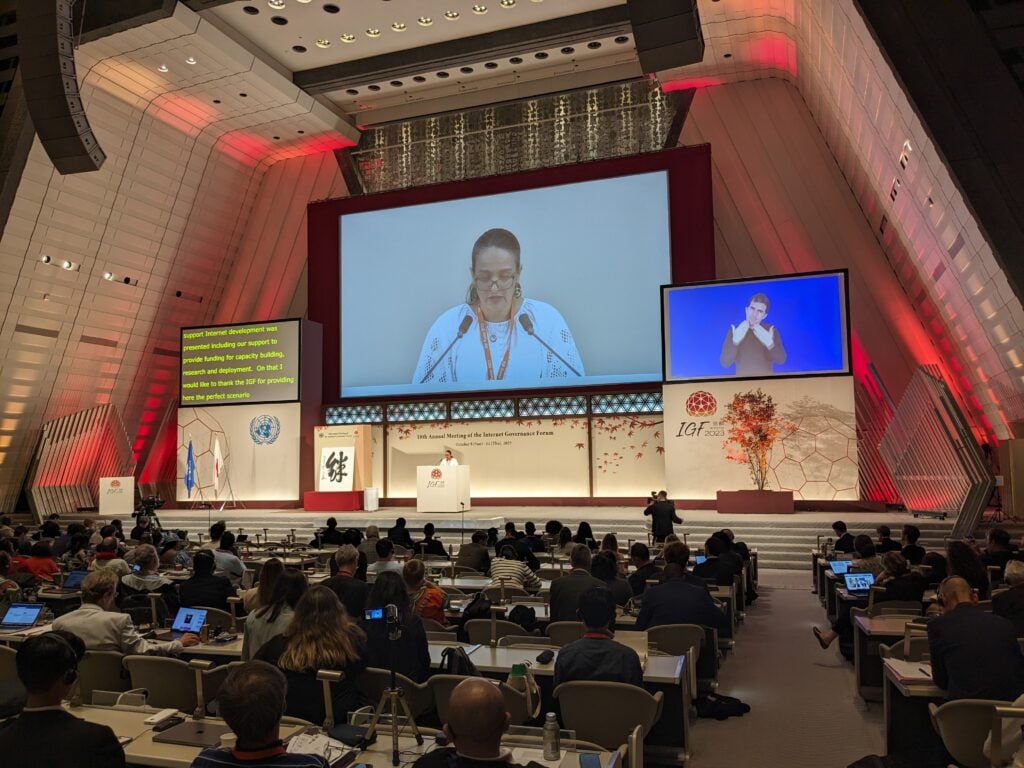
Booths and other activities
WIDE Project booth
The WIDE Project in Japan had a booth at the IGF. The APNIC Foundation works together with WIDE on some projects, via Keio University. The Foundation supports the SOI Asia project and AI3.
One of the activities that SOI Asia and AI3 run is the Asia Pacific Internet Engineer (APIE) program, which trains Internet engineers and welcomes them to the technical community. They also support Research and Education Network infrastructure and research initiatives in the Asia Pacific.
Discover more about the booth activities on the SOI Asia and WIDE Project sites.
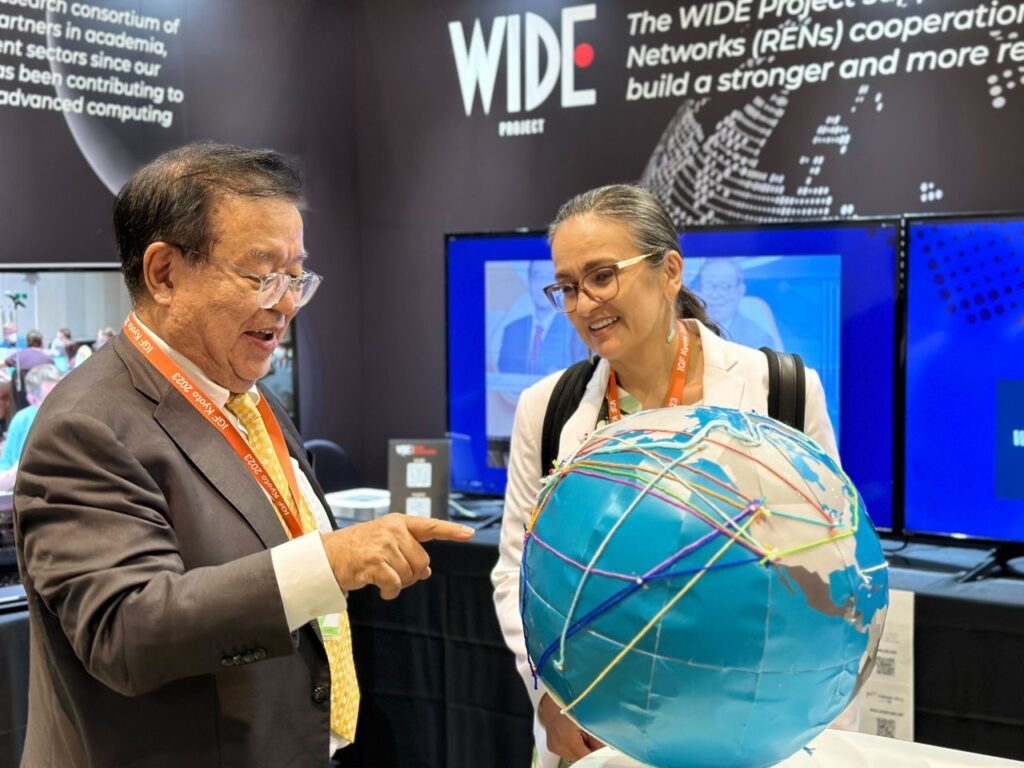
Tsinghua University booth
Tsinghua University had a booth at the IGF, dedicated to the BGP Watch platform project. BGP Watch is an initiative of Tsinghua University, the China Education and Research Network (CERNET) and a group of Research and Education Networks (RENs) throughout the Asia Pacific. This platform aims to support Border Gateway Protocol (BGP) capabilities, particularly for RENs, but it’s open to the public for use. BGP Watch has been supported by two ISIF Asia grants.
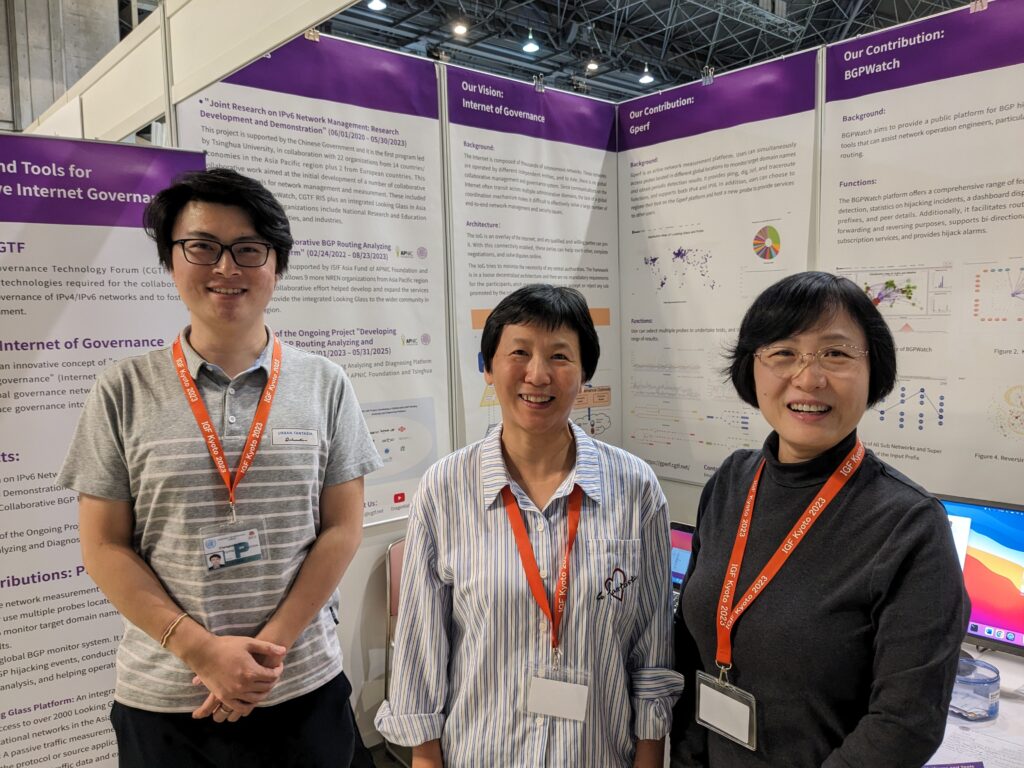
IPGO competition
The Foundation is supporting a project by APNIC to raise awareness of technical Internet concepts among non-technical audiences. This involves the development of a game IPGO. IPGO was previously a card game, and has now been created as a learning experience used via an app. More information is available on the project page.
A competition was held at the IGF for people who had completed the game, with winners given IPGO tote bags.
